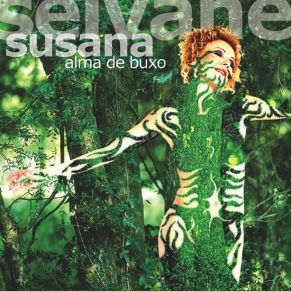Alma de Buxo
Download links and information about Alma de Buxo by Susana Seivane. This album was released in 1992 and it belongs to World Music, Latin genres. It contains 13 tracks with total duration of 47:17 minutes.

|
|
|---|---|
| Artist: | Susana Seivane |
| Release date: | 1992 |
| Genre: | World Music, Latin |
| Tracks: | 13 |
| Duration: | 47:17 |
| Buy it NOW at: | |
| Buy on iTunes $9.99 | |
| Buy on Amazon $8.99 | |
Tracks
[Edit]| No. | Title | Length |
|---|---|---|
| 1. | Vai de Poleas | 3:48 |
| 2. | A Farándula | 2:53 |
| 3. | Sainza - Riofrío | 4:07 |
| 4. | Roseiras de Abril | 4:01 |
| 5. | Xoaniña | 3:00 |
| 6. | Rumba Para Susi | 4:28 |
| 7. | Vals Bretón - Muiñeira Picada | 4:53 |
| 8. | Na Terra de Trasancos | 3:22 |
| 9. | Miñeira de Alén | 2:30 |
| 10. | Ti e Máis Eu | 3:13 |
| 11. | Chao - Curuxeiras (Xosé Manuel Seivane) | 3:00 |
| 12. | Chao - Curuxeiras | 3:27 |
| 13. | Marcha Procesional Dos Cineo de Galicia | 4:35 |
Details
[Edit]It's always a pleasure to see an artist grow while remaining true to his or her roots, and Seivane takes a great leap of this record, whose title translates as "Soul of the Boxwood" — a reference to the wood used to make Galician bagpipes. She starts off by picking up where she left off with her last disc with the village sound of "Vai De Polcas" (although few Galician villages probably include steel guitar in their musical arsenals). The interplay between pipes, violin, and accordion is close as the piece crackles along, as it also does in "A Farándula." The first real indication that something different is happening here comes with "Roseiras de Abril," featuring a surprisingly strong Seivane vocal on her own song. A couple of tracks later comes "Rumba Para Susi," not a rhumba in the more Cuban sense, but one where the brass creates a feel that wouldn't seem out of place on the theme to Ponderosa, with Seivane doing some beautiful things on top. It's an odd juxtaposition, but it works. She's not afraid to expand her tradition, but also explore it properly, and "Muineira de Alen" definitely goes back, a chorus of seven women singing accompanied solely by distinctive metal tambourines. The album's greatest joy, however, comes with the final three tracks. First is "Chao — Curuxeiras," composed and played by Seivane's grandfather in a relaxed home performance, then Seivane's own, updated version of the piece, remaking the tradition in very visible fashion while keeping true to its heart. She finishes with an unaccompanied pipe piece, a processional and a muiñera that highlights the beauty of her instrument. Performers like Carlos Nuñez and Susana Seivane have made the Galician pipes come of age. And with this record, she's done something very beautiful.